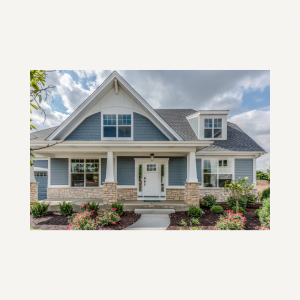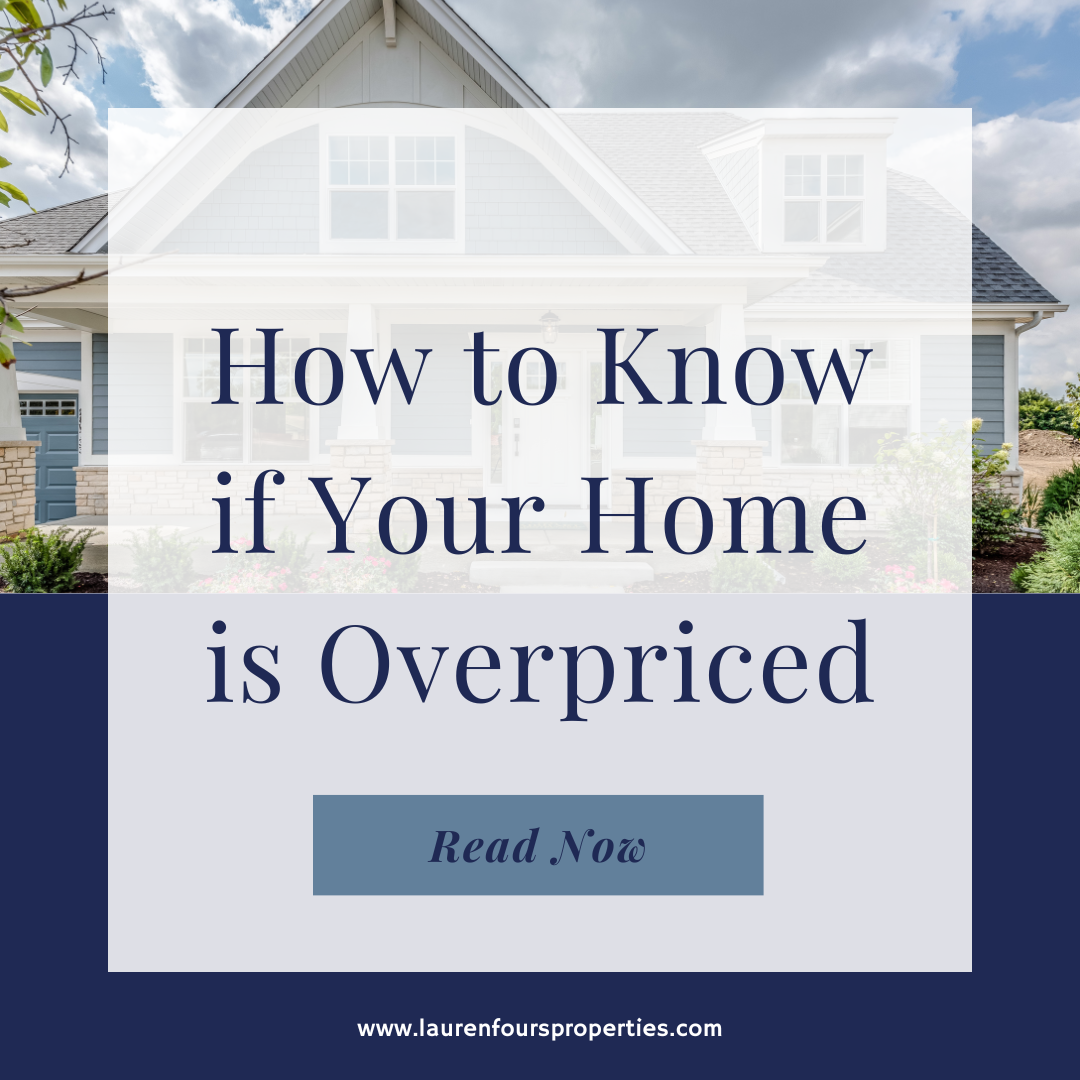
If there’s one thing we caution sellers against, it is overpricing their home. Although it may seem like a sound strategy because it leaves room for negotiation, it can actually work against the seller, and decrease the number of potential homebuyers that will visit their home. Most buyers get preapproval amounts from mortgage lenders and enter the homebuying process with a specific price range. Putting your home overvalue can deter a pool of house hunters right from the get-go. On the contrary, pricing your home accurately is essential to attracting homebuyers and selling your home. So how do you know if your home is overpriced? Let’s examine a few ways.
Do Some Research on Pricing
It will not be enough to grab an estimated number out of thin air or rely on the Zestimate you found online. You will need to do some research to determine if your home is priced accurately. One way to do this is to look at comparable sales in or near your neighborhood. Specifically, you should evaluate homes like yours in terms of square footage, acreage, and condition. You’ll want to make sure that the sales were recent due to the natural ebbs and flows of the real estate market. While you can certainly scope out some of this information yourself, a realtor who has access to the MLS can quickly and easily pull these comps for you.
You can use your research to determine if your home is overpriced. If the home around the block from yours that is the same size, was built the same time as yours, and has a few desirable updates sold two weeks ago for $450,000, chances are that your home that is lacking updates is overpriced at $475,000. If this is the case, you may see less foot traffic at open house events and fewer showings than if your home was priced at a more accurate amount.
Consider What Type of Market it is
When pricing your home, you should be aware of what type of real estate market it is. Simply put, there are three types of markets:
Buyer’s Market
This is when there are fewer buyers than there are available homes for sale. Buyers will have an advantage, and sellers may want to price their home lower to combat the competition.
Seller’s Market
This is when there are more buyers than there are available homes for sale. Sellers will have an advantage and may consider pricing their home higher since buyers may be willing to pay more due to limited inventory.
Balanced Market
This is when there are about the same number of buyers as there are available homes for sale. In this kind of market, it is especially important to price your home accurately.
If it is a buyer’s market or a balanced market, there is a greater chance of your home being overpriced. With more competition and fewer buyers, you’ll want to adjust your price to make sure you are enticing buyers to add your home to their “must-see” list.
Evaluate the Condition of Your Home
This can be a hard task to do but is an imperative one. Typically, clients love their homes. As such, it can be hard to properly assess the condition and desirability of your home from the standpoint of someone viewing it with fresh eyes. If you are turning your back on some aspects of your home that potential buyers might show concerns about, you will be more likely to overprice your home. Being honest about the condition of your home will allow you to set your price more accurately. Even if the condition of your home isn’t top notch, if it is fairly priced, buyers will still be more apt to put in an offer.
Furthermore, if you price your home above the condition it is in, and it receives a lower appraisal amount than the agreed upon sale price, you run the risk of the buyer being unable to keep the purchase agreement. If you are having trouble properly evaluating the condition of your home, ask a friend or real estate professional to help. They will be able to view your home from a more objective standpoint and assist in making sure your home is not overpriced.
Get a Professional Appraisal
This is not something we regularly recommend, because typically, if clients work with us, we are able to assist them in determining an accurate list price. However, if you want to be as precise as possible, and eliminate the risk of your home not appraising at list price, getting a professional appraisal will definitely help you choose the right price. Appraisers use a variety of factors including the recent sales data and home condition to determine how to price your home at fair market value. This is the most clear-cut way to make sure your home is not overpriced. However, this will still not take into consideration other factors that may influence a potential buyer’s willingness to agree to that price, so you may need to adjust accordingly.
Consult a Real Estate Agent
So, this is both professional advice, and a shameless plug, but when all is said and done, if you want to avoid overpricing your home, consulting a real estate agent is your best bet. Realtors have experience, knowledge, and access to tools to aid clients in pricing their homes. Additionally, real estate agents have a deep understanding of what the local market looks like and how this will impact home pricing. They may use a CMA- comparative market analysis- to show how the seller’s home compares to others in the market. The combination of understanding the market, having in-depth experience with real estate transactions, and the utilization of a CMA provide real estate agents with the ability to go all Bob Barker and ensure that “The Price is Right.” Think your home is overpriced? A real estate agent will be able to confirm or deny, leaving all the guesswork out of it.
Keep in mind that if your home has stayed on the market for a significant amount of time, that this is another indication it could be overpriced. Over time, market conditions change, and as a result, you may need to adjust the price of your home to accommodate it. Especially, since often, homes staying on the market for too long of a period can be a red flag for potential buyers.
Overpricing your home can be an Achilles heel. By delving into some research, considering the type of market, properly assessing the condition of your home, and getting a professional appraisal and/or hiring a real estate agent, you will put yourself in a position to accurately price your home. Looking for a team to help? The Oak & Main Real Estate Group Coldwell Banker Advantage would love to share our experience & expertise with you!


 Facebook
Facebook
 Twitter
Twitter
 Pinterest
Pinterest
 Copy Link
Copy Link
